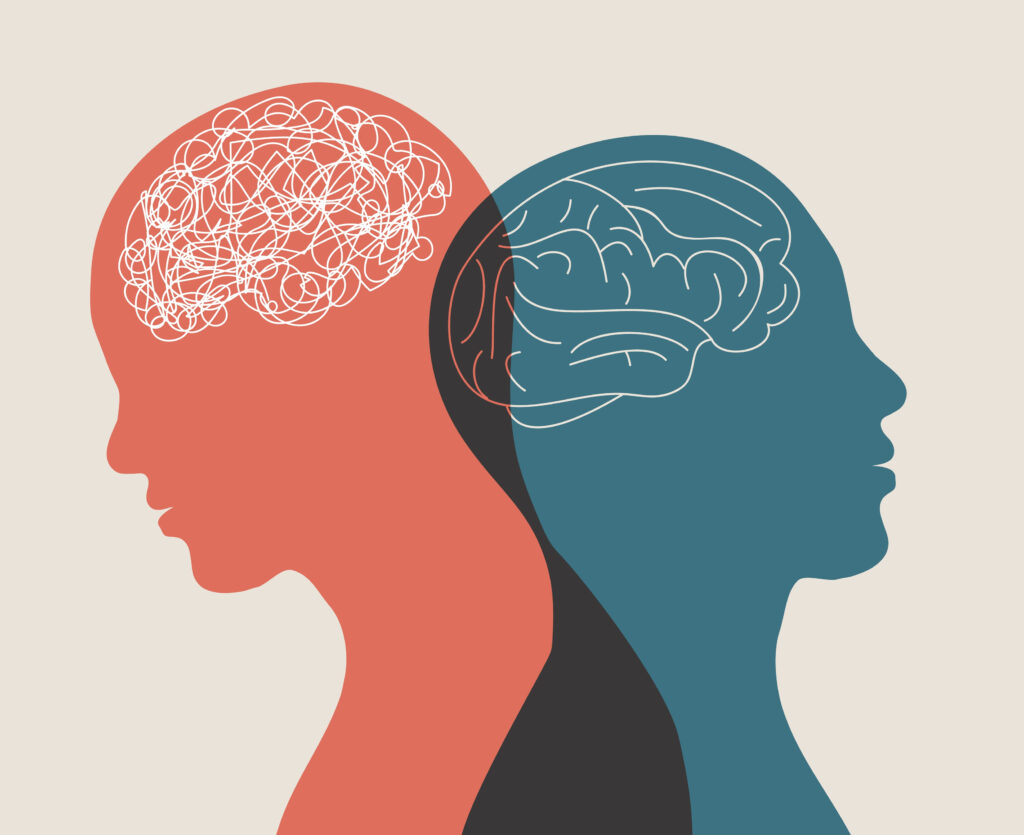Mental health is a crucial aspect of overall well-being, yet it is often misunderstood and stigmatized. To foster a better understanding, it is essential to recognize the various types of mental health disorders, their symptoms, and the importance of seeking appropriate mental health counseling. At Harmony Harbors, we aim to provide comprehensive support for individuals and families navigating these challenges, helping them on their journey to family recovery.
Common Types of Mental Health Disorders
- Anxiety Disorders
Anxiety disorders are among the most prevalent mental health issues, affecting millions of people worldwide. These disorders include generalized anxiety disorder, panic disorder, social anxiety disorder, and specific phobias. Individuals with anxiety disorders often experience excessive worry, fear, or panic that interferes with daily activities. Symptoms can range from rapid heartbeat and sweating to feelings of impending doom and avoidance of social situations.
- Mood Disorders
Mood disorders encompass a range of conditions that affect an individual’s emotional state. The most common mood disorders are major depressive disorder and bipolar disorder. Depression is characterized by persistent feelings of sadness, hopelessness, and a lack of interest in activities once enjoyed. Bipolar disorder involves extreme mood swings, from manic episodes of elevated energy and euphoria to depressive episodes of deep sadness and lethargy.
- Psychotic Disorders
Psychotic disorders involve distorted thinking and awareness, leading to symptoms such as hallucinations and delusions. Schizophrenia is the most well-known psychotic disorder, characterized by symptoms like hearing voices, seeing things that aren’t there, and holding false beliefs. These symptoms can severely impact an individual’s ability to function and maintain relationships.
- Behavioral Disorders
Behavioral disorders, also known as disruptive behavior disorders, primarily affect children and adolescents. These disorders include attention-deficit/hyperactivity disorder (ADHD), oppositional defiant disorder (ODD), and conduct disorder. Children with behavioral disorders may exhibit hyperactivity, impulsiveness, defiance, and aggression. Early intervention and mental health counseling are crucial for managing these behaviors and supporting family recovery.
- Personality Disorders
Personality disorders involve enduring patterns of behavior, cognition, and inner experience that deviate markedly from societal expectations. Common personality disorders include borderline personality disorder, narcissistic personality disorder, and antisocial personality disorder. Individuals with these disorders often struggle with relationships, self-image, and regulating emotions.
The Role of Mental Health Counseling
Mental health counseling is a vital resource for individuals experiencing mental health disorders. It provides a safe and supportive environment where individuals can explore their thoughts, feelings, and behaviors with a trained professional. Counseling can help individuals develop coping strategies, improve communication skills, and address underlying issues contributing to their mental health challenges.
At Harmony Harbors, we understand the importance of mental health counseling in promoting family recovery. Mental health disorders do not only affect the individual but also impact their loved ones. Through family recovery programs, we offer support to families, helping them understand the nature of mental health disorders and equipping them with tools to foster a healthier, more supportive home environment.
Seeking Help: When and How
Recognizing when to seek help is crucial. If you or a loved one experiences persistent symptoms of a mental health disorder that interfere with daily life, it is important to reach out to a mental health professional. Symptoms to watch for include:
- Persistent feelings of sadness or anxiety
- Withdrawal from social activities
- Changes in eating or sleeping patterns
- Extreme mood swings
- Difficulty concentrating
- Unexplained physical ailments
- Thoughts of self-harm or suicide
Seeking help early can prevent symptoms from worsening and provide relief through effective treatment. Mental health professionals, including counselors, therapists, and psychiatrists, can provide individualized care tailored to each person’s needs.
Get Started With Harmony Harbors Today
Understanding the different types of mental health disorders and the importance of mental health counseling is essential for promoting well-being and family recovery. At Harmony Harbors, we are dedicated to providing compassionate and comprehensive support for individuals and families dealing with mental health challenges. By recognizing the signs and seeking appropriate help, we can work together to build a healthier, more supportive community. If you or a loved one needs assistance, do not hesitate to reach out and start the journey towards recovery today.

